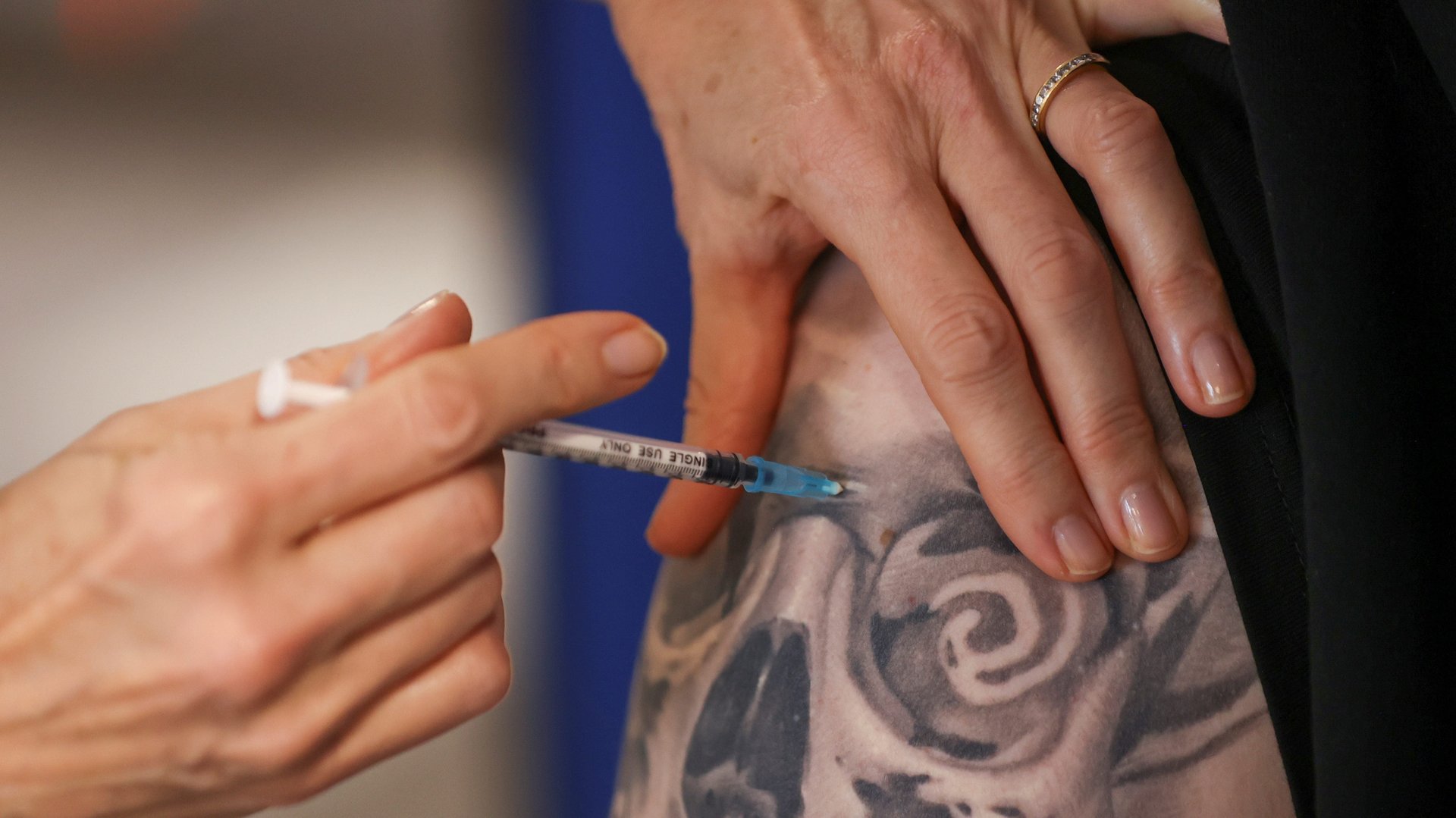Why some European countries are pausing their AstraZeneca vaccine rollouts
Europe’s rollout of the Oxford/AstraZeneca Covid-19 vaccine has been plagued with problems. Initial delays in deliveries caused a very public brawl between EU authorities and the Anglo-Swedish drugmaker. And misinformation about the jab’s effectiveness among older people, propagated not just on social media but also by German media and French president Emmanuel Macron, has scared some people off, and convinced them to wait for another vaccine as millions of doses sit unused.


Europe’s rollout of the Oxford/AstraZeneca Covid-19 vaccine has been plagued with problems. Initial delays in deliveries caused a very public brawl between EU authorities and the Anglo-Swedish drugmaker. And misinformation about the jab’s effectiveness among older people, propagated not just on social media but also by German media and French president Emmanuel Macron, has scared some people off, and convinced them to wait for another vaccine as millions of doses sit unused.
Now, 19 European countries have halted the rollout of the shot over concerns about blood clotting that many health experts warn are unfounded.
Spain and Sweden became the latest countries to hit pause on their rollouts of the AstraZeneca vaccine this week after a handful of incidents were reported across Europe where vaccinated people died of conditions related to blockages in their veins. (Those weren’t identified in trials as possible side effects of the AstraZeneca vaccine.) They join a growing list of European states who have either stopped distributing AstraZeneca vaccines altogether, or stopped distributing specific batches of it:
- Portugal
- Slovenia
- Cyprus
- France
- Germany
- The Netherlands
- Ireland
- Denmark
- Bulgaria
- Norway
- Iceland
- Austria
- Italy
- Estonia
- Lithuania
- Luxembourg
- Latvia
In medical trials, the AstraZeneca shot was found to be 82% effective at preventing serious illness or death from Covid-19 after two doses separated by 12 weeks. It’s a great option for poor countries because it’s easier to store and ship than other shots. Halting the rollout of an effective, available vaccine in the middle of a deadly pandemic where every dose is desperately needed is a very serious decision to make. Is it the right one?
Why are European countries worried about the AstraZeneca shot?
So far, “the number of thromboembolic events in vaccinated people is no higher than that seen in the general population,” said the European Medicines Agency‘s pharmacovigilance risk assessment committee (PRAC), noting that as of March 9, there were only 22 cases of blood clots in vaccinated people out of the more than 3 million people who received the AstraZeneca shot in the European Economic Area. The World Health Organization also insists the vaccine is safe, and that “no causal relationship has been established between the shot and the health problems reported.”
According to PRAC, there were 1 million doses of the AstraZeneca vaccine in batch ABV5300 (the one that has Austria, Estonia, Lithuania, Luxembourg, and Latvia worried about possible links to blood clots). PRAC is investigating the batch, as well as broader concerns about the AstraZeneca vaccine; but it stressed in a statement that at this stage, there is “no indication that vaccination has caused” the adverse reactions and that “a [batch] quality defect is considered unlikely at this stage.”
In a statement to the press, a spokesperson for AstraZeneca said:
“An analysis of our safety data of more than 10 million records has shown no evidence of an increased risk of pulmonary embolism or deep vein thrombosis in any defined age group, gender, batch, or in any particular country with Covid-19 Vaccine AstraZeneca. In fact, the observed number of these types of events is significantly lower in those vaccinated than what would be expected among the general population.”
Many medical experts say European countries’ response may prove to be an over-reaction, given that Covid-19 is associated with blood clots, which means the adverse events could have been caused by the disease rather than the vaccine.
“A sensible approach is to investigate,” according to Stephen Evans, a professor of pharmacoepidemiology at the London School of Hygiene & Tropical Medicine. But “since we know with great certainty that the vaccine prevents Covid-19 with its attendant disease, and we are almost totally uncertain that the vaccine can have caused this problem, the risk and benefit balance is still very much in favor of the vaccine in my view.”
As concerns about the vaccine spread outside Europe, the WHO implored countries to continue using it on their populations.“As of today, there is no evidence that the incidents are caused by the vaccine and it is important that vaccination campaigns continue so that we can save lives and stem severe disease from the virus,” WHO spokesman Christian Lindmeier said.
In the UK, where more than 11 million doses of the vaccine have already been distributed and the numbers of infections have fallen steadily, authorities said the number of adverse events is in line with what’s expected in any general population. “People should still go and get their Covid-19 vaccine when asked to do so,” said Philip Bryan, vaccines safety lead at the UK’s Medicines and Healthcare Products Regulatory Agency.